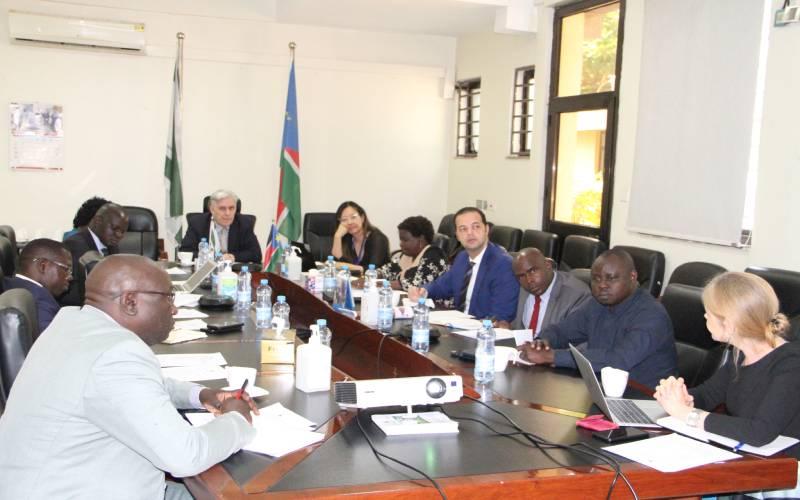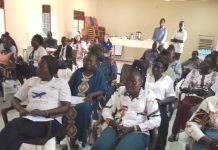Africa-Press – South-Sudan. The Reconstituted Joint Monitoring and Evaluation Commission (RJMEC) said the delay to complete the unification of the forces is to blame for the increasing inter-communal conflicts.
The peace monitor stated this in a report it released for the period running between April 1 to 30 June 30, 2022, on the status of implementation of the revitalised peace agreement.
The interim chairperson of the RJMEC Maj Gen. Charles Tai Gituai said in the report also entailed very little progress made in the relation to the key outstanding tasks of unifying the Necessary Unified Forces.
“Failure to complete the unification continues to be a major cause of concern, particularly given the spiraling level of inter-communal violence in some parts of the country,” he said
“There is an expectation that the redeployment of the NUF into those areas impacted by intercommunal violence may help in reducing such incidents,” Gen Gituai added.
According to the report, the R-TGoNU’s ‘‘failure to move forward with the graduation of the NUF has remained a source of grave concern, given the critical importance of completing the tasks to South Sudan’s overall peace and security.’’
‘‘Since the previous quarter, there has been no significant change in the status of cantonment sites and unified training centres,’’ the peace lamented.
RJMEC lamented that the ‘‘logistical situation remains dire, with most locations having little or no food or medicine.’’ The commission noted that many unified forces had left the sites in search of ‘‘food, basic life support, commodities, and shelter.’’
“The RTGoNU has consistently failed to provide the much-needed funding and sufficient logistical support to sustain troops in the cantonment sites and training centers during this reporting period and indeed for the past two years,” Gituai said.
In 2021, the NUF in Rejaf training centre was abandoned and forgotten when the trainees fell ill with no hopes of receiving medication.
‘‘In Rejaf, the biggest training centre that hosted 8,137 unified forces awaiting graduation has faced a drastic reduction in the number of trainees as forces fled the camp over a dire state of living.’’
According to Maj Gen. Gituai, the RTGoNU has consistently failed to provide much-needed funding and ‘‘adequate logistical support to sustain troops in cantonment sites and training centres during this reporting period, as well as for the previous two years.’’
Although Phase One graduation and redeployment of the unified forces are still during the reporting period, the armed signatory parties signed an agreement on command unification on April 3, 2022, which was mediated by Sudan as the Chair of IGAD and On April 13, South Sudan President Salva Kiir swore in all generals appointed to the unified command.
Maj Gen. Gituai said R-JMEC had hoped that the establishment of the unified command would hasten the graduation and redeployment of the NUF Phase.
“But no progress has been reported by the parties due to a lack of funding and, to some extent, political will,” he lamented.
Also, he said RJMEC had received reports of serious violations of the peace agreement that occurred in Unity State between February to April 2022 where several accounts of rape and sexual violence, displacements, and civilian deaths were reported.
“RJMEC has received reports of serious violations of the peace agreement that occurred in Unity State between February to April 2022. RJMEC under article 7.10 of the R-ARCSS is required to inform the 13 RTGoNU of the violations and request remedial action.”
During the reporting period, the Permanent Ceasefire was largely maintained among the Agreement’s signatory parties.
However, he stated that tensions between Sudan People’s Liberation Army-In Opposition (SPLA-IO) forces and South Sudan Peoples Defence Forces (SSPDF) or defectors aligned with the SSPDF, as well as local youths in Upper Nile and Unity States, remain high.
He stressed that tensions were higher in Maiwut, Longechuk, and Maban counties in Upper Nile as a result of the March 2022 attacks on Jakau and the May 2022 attacks on the Liang Cantonment Site.
According to the Ceasefire Transitional Security Arrangements Monitoring and Verification Mechanism, the April 8–12, 2022 attacks on Leer County in Unity State by youth from Koch and Mayendit Counties resulted in many deaths, injuries, property destruction, looting, civilian displacement, and several rape cases (CTSAMVM).
For More News And Analysis About South-Sudan Follow Africa-Press






